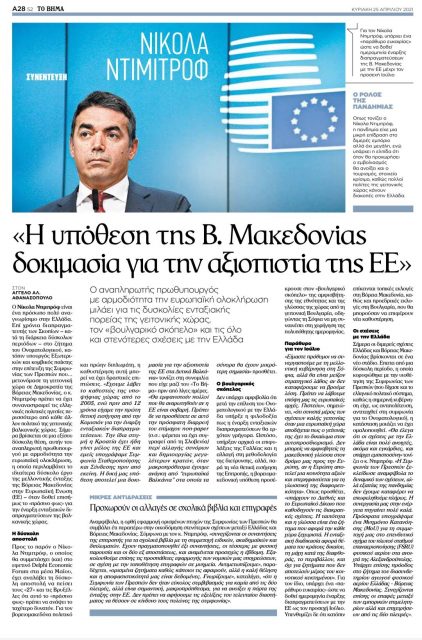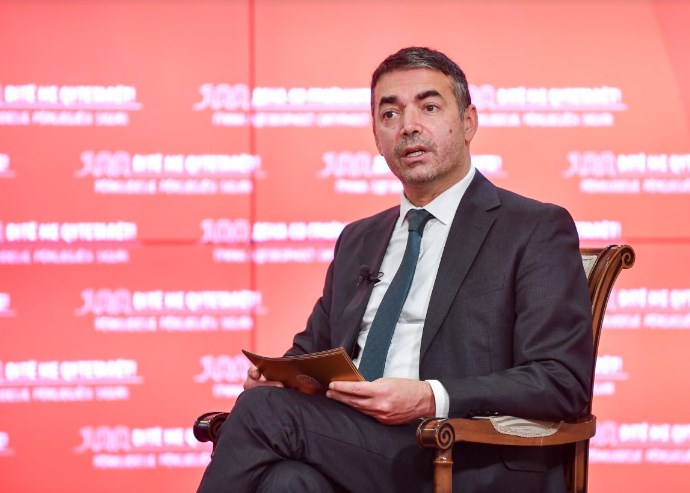Our case is a test of EU’s credibility on the Western Balkans, Deputy PM for European Affairs Nikola Dimitrov has told Greek daily To Vima, MIA reports from Athens.
He explains that our country received the candidate status in 2005, and 12 years ago we had the first positive report on the start of accession negotiations, while Croatia became a member, although our country had signed the Stabilization and Association Agreement before them.
Many will wonder if the EU is serious. Add to this the recent release of the controversial non-paper to change borders and form larger states, when in the long run we need a “European Balkans” in which borders will be less important, says Dimitrov.
In the interview, the Deputy Prime Minister spoke also about the European perspective of the country, Bulgaria’s blockade, and the bilateral relations with Greece.
He expresses readiness for Skopje to cooperate with the future government in Sofia, but stresses that “it will be a major strategic mistake if we fail to find a solution.”
We need to take into account European principles. I believe it is part of good neighborly relations when a European country accepts that its neighbor has the right to self-determination. One cannot challenge the Macedonian language on our way to Europe, if Europe is a community of values and takes pride in its linguistic diversity. There are the international and European laws that govern interstate relations. Identity and language are issues that concern each country separately, Dimitrov explained, adding that the accession process addresses issues such as the rule of law, the fight against corruption, and not issues that are not related to European legislation, he said.
As “To Vima” writes, Dimitrov says that there is a “window of opportunity” to get a date for the start of EU negotiations by July.

Regarding the relations with Greece, the Deputy Prime Minister commented that they are “very open, even cordial and there is trust”.
The Prespa Agreement undoubtedly unlocked the dynamics in the relations, but due to the pandemic we failed to completely release them. Our cooperation in the energy sector is going very well, Dimitrov commented and reminded that a Memorandum of Understanding was recently signed for Macedonia’s participation in the investment project for construction of the Alexandroupolis LNG terminal, as well as progress regarding the natural gas interconnector between the two countries.
As to the textbook commission arising from the Prespa Agreement, the Deputy Prime Minister explained that six meetings have been held so far, four in person and two via video conferencing, and the seventh meeting is expected soon.
We know that the Prespa Agreement is not an easy compromise for either side, but it is important in the long run to open the door to EU integration, Dimitrov commented.





Comments are closed for this post.